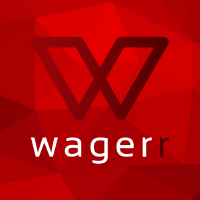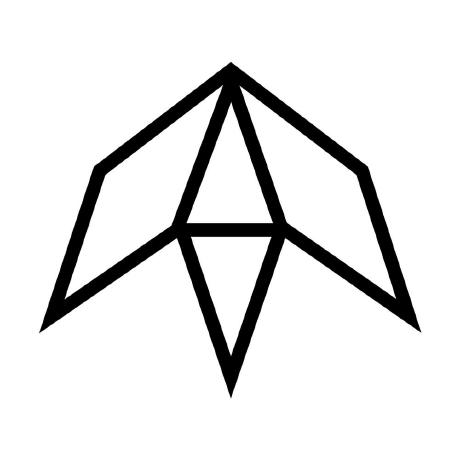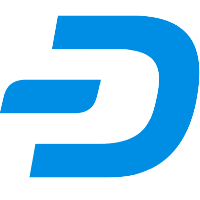Descrption:Wagerr is a decentralized sportsbook that changes the way the world bets on sports. Wagerr uses distributed blockchain technology to execute betting contracts. It escrows stakes, verifies results, and pays out winners. By eliminating central authorities, Wagerr solves the most pernicious problems in the industry. Reducing corruption and risk results in predictable operation. You can bet on Wagerr.
waggerr
v1.0
Principle and design goals
Wagerr is a decentralized sportsbook that brings trustless sportsbetting to the entire world.Due to its strict use of Application Specific Smart Contracts (ASSC) and 2nd layer network controlled by Oracle Masternodes, Wagerr solves the security, scaling and incentive issues that have plagued smart contracts since their inception. Additionally, Wagerr combines leaps in technical design with an economic linkage that creates a deflationary, and self regulating economy. Through decentralized governance and contract fees, structural mechanisms balance Wagerr’s token value by dynamically adjusting supply based on the current exchange rate and betting volume within the Wagerr network. Wagerr does this all while avoiding single points of failure and implementing a network and system that is fully decentralized.
Transaction functions
Wagerr is a two tiered network comprised of standard wallets and Oracle Masternodes.
Standard Proof of Stake wallets
● The first layer is the standard transactional layer in which basic wallets earn rewards for block formation.
● Provide network security and confirm blocks of transactions that constitute the blockchain, the ledger of immutable transactions.
● Maintain a full copy of the blockchain.
Oracle Masternode intranet
● Oracle Masternodes, a second layer of the Wagerr network, function as consensus agents, forging betting contracts, retrieving sporting events outcomes data, and consensually validating results that trigger contractual payouts.
● Oracle Masternodes also mediate decentralized governance of the Wagerr network, as discussed in greater detail in section 7.10
Betting functions
The Wagerr system facilitates three modalities of sports betting:
1. Peer to peer betting
Peer to peer betting (or “head to head” betting) requires two partners to take opposite sides of a betting contract. The players agree on the betting line and the total amount at stake. One player initiates the bet by posting it to the blockchain from their wallet. When the partner sends coins for the complementary side of the bet, the blockchain tags them as transactions with dispositions contingent upon the outcome of the specified event. Once the event is completed, the Oracle Masternode network records the performance result on the blockchain, triggering a payout to the winner. If the event never happens, the coins, minus fees, are returned to the original transactors. This feature is great for casual players, friends who live apart, colleagues, etc. They can make a plan, forge a contract on the blockchain, and leave the rest to the Wagerr network.
2. Multi user betting
Multi User betting is like peer to peer betting, but in this case multiple users can take the complementary position against a larger bet until the total value of the bet is met. Since this mode of betting requires less specificity about the size of the bet, the blockchain can perform the work of matching multiple bets until an equally weighted or minimum contract is achieved.
3. Peerless direct chain betting
Peerless betting does not require a complementary transaction to forge a contract. Any bettor can initiate a contract on chain, which the Wagerr network is programmed to pay out if the bettor wins. Peerless betting maximizes flexibility for bettors.
How does Wagerr balance the risks of peerless betting? The blockchain pays out winning bets that are confirmed by the Oracle Masternode network, by minting coins for the payout. This means that the blockchain does accrue some risk of coin supply expansion though forging such contracts, but the risk is balanced by several factors. Losing bets systematically destroy coins, creating a balance over time. That’s because 48% of all betting fees are destroyed, tipping that balance in favor of net coin destruction from direct chain betting. In fact, because losing bets destroy more coins than winning bets generate coins on the network, an intrinsic advantage is created for all WGR holders in terms of coin supply. Specifically, on a losing bet of 100 WGR, 96.88 WGR would be destroyed; by contrast, on a winning bet of 100 WGR, only 94 WGR would be generated. This imbalance constitutes the house edge of approximately 3%.
The final technological balance is a development called, “dynamic odds balancing.” When peerless betting creates an imbalance in risk, where the payout liability is higher for winning than for losing, the network dynamically adjusts odds to encourage complementary betting that will balance the network liability.
Peerless betting is by far the simplest solution for sports bettors because it requires no planning, and eliminates the risk of finding complementary partners. Peerless betting also attracts traditional sports betting operations that routinely manage their own payout liability by placing bets with peer organizations. Now, instead of relying on their peers to take the other side, major sports betting outfits can enjoy low fee betting on the trustless Wagerr system instead of entrusting assets to competitors. That’s important because regulated competitors are subject to regulatory insecurity and unregulated competitors have no legal obligation to honor agreements. Wagerr, a decentralized technological system, does not require sports bettors or sports betting organizations to trust any one party whose trustworthiness cannot be verified. Users instead entrust verifiable open source code that they can inspect for themselves.
Technology implementation
Consensus mechanism
Step 1 Oracles actively searching for new events inside supported leagues, always trying to build consensus for upcoming events. Consensus for a new event requires a supermajority; Of the 2000 possible Oracle Masternodes, 1500 need to report the same event defined by the Event’s UTC Time, and their unique identifying codes.
Once the event is completed, the Oracle Masternode network can begin to post the outcome data. An event outcome is confirmed only after 75% of all Oracle Masternodes achieve consensus on the outcome. Once the outcome is finalized and posted, the Wagerr network recognizes completion of the contract, and the winning user is paid out accordingly.

Accounts and transactions
To make it easier to find and fulfill more bets on low volume events, the system allows multiple players to be paired against a single bettor. This ensures that large bets do not require an exact match to forge a contract. The fee for this transaction is 4 percent. 2% of the fee goes to the Oracle processing the transaction and 2% gets burned. Here is the Flow of a multiple user bet from start to finish.

Smart contract system
Cryptography
Distributed storage protocol
Cross-chain and exchange technology
Special technology
Economic model and incentive
Crafting a coin to cultivate an economy
The Wagerr team didn’t set out to make a “currency.” Instead, the Wagerr team has engineered an economy. The key to the model’s design has been the structuring of incentives to reward and maintain behaviors that add value to the Wagerr network, and devising subsystems that translate the Wagerr network value to the WGR token value.
ICO structure incentivizes maximal distribution
From the beginning, the ICO structure gamifies participation by rewarding early investorswith the prospect of progressive bonuses contingent upon the ICO’s incremental
success. Early investors thus are not only invested in the wellbeing of the coin, but also in the optimal success of the ICO. As the ICO approaches sale of the
maximum number of coins, the Wagerr network becomes increasingly distributed, meaning that more and more people are invested in Wagerr. The very structure
of the ICO promotes a basic goal of decentralization which makes the network more robust. Secondarily, this gamification of the ICO makes it more fun, aligning with
Wagerr’s commitment to the freedom to pursue happiness.
Value coupling creates incentives for participants to contribute network value
Value coupling mechanisms incentivize all who hold Wagerr to contribute to the value of the Wagerr network, with greater rewards incentivizing greater investments in Oracle Masternodes which perform the security operations, consensus agent functions, and contract management roles at the heart of the sports betting blockchain.
Governance mechanism
Once the distributed network is established and stable, the original Wagerr development team will fully relinquish control of the github and distribute the role of governance to the network. The Wagerr network achieves decentralized governance through a voting system in which each Oracle Masternode holds the franchise. This second tier of the network extends the principles of proof of stake to the most heavily invested Oracle Masternodes which perform the essential functions of the sports betting blockchain. Funds have been allocated for continuous investment of ongoing development to contribute growing value to the network and to fund adaptations to any unanticipated phenomena not accounted for in the original design. The Oracle intranet collectively has the power to vote on network rules, development targets, and the allocation of dedicated development funds.
7.9.1 Payout dispute In the event that a user or node believes they did not receive a proper payout, there are measures users can take to signal and petition the Oracle Masternode network to request a review of the resolution to their bet. Signaling for a review is as simple as submitting a contract. Supermajority consensus (75%) of the Oracle Masternodes must be obtained to overturn or invalidate betting contracts.
7.9.2 Penalized nodes If a node continues to submit match data that falls out of consensus after they have been demoted in the past, the Oracle network can vote to penalize the node of any of the fees collected since its promotion. The network recovers these coins via the collateralized coins via 90% supermajority vote in the terms of the smart contract.
7.9.3 Oracle Masternode voting A decentralized voting mechanism within the Wagerr wallet allows network and protocol changes to be proposed. From there, the Oracle Masternodes as a whole vote on the proposal. Each change or modification passed with two thirds majority is deployed to the main network automatically. Example: An Oracle operator would vote on a protocol or core change simply by using the command “masternode vote yay” or “masternode vote nay,” votes would then propagate across the network, be tallied, and the instructions would be followed by the network itself. Operators have the option to abstain by simply not voting. Abstaining Oracle Masternodes are not counted in the voting tally.
7.9.4 Potential network threats The structure of the Wagerr network anticipates that some bad actors, given the opportunity, might attempt to feed bad sporting events outcome data to the network. Consequences for bad actors: See 7.9.2 Penalized nodes. The Oracle Masternode network requires multiple checks on contracts to safeguard against false winners. The rigid language of the smart contract structure leaves no vulnerable surface for attack. Supermajority (75% ) vs. simple majority (51%) Oracle Masternode operators have a deeply vested interest in the security and integrity of the blockchain, event results, core protocols, and coin code. Events require 75% network consensus, ensuring that the posted data is highly reliable. Consider this 75% requirement in contrast with almost all digital currencies which require a simple majority (over 50%) to be considered “consensus.” Wagerr governance and security protocols are far more secure. Major protocol changes require two thirds (66.67%) consensus among Oracle Masternodes. The ability to acquire this much of the network would be either cost prohibitive, or logistically impossible due to the anonymity of the system. Furthermore, even if attackers attained 66.67% of the network, they would have the most to lose by attempting to manipulate the network in their favor. If they were to change the rules to produce unfair outcomes, their bad actions would drive the value of the Wagerr network and WGR token to zero. The more any Wagerr network participant owns, the more incentive they have to enhance network value — and the more disincentive they have to harm the network. Again, the transparency of open source code means that any hostile change would be flagged. The sustained buying pressure necessary to achieve disproportionate network control would drive up the price of WGR, requiring a huge investment, such than any attempt to abuse the system would result in catastrophic losses for the bad actor. Wagerr eliminates the possibility of low cost network attacks by charging higher fees for activities that consume resources, but detract, rather than add, value to the network. For instance: ● The network restricts high volume/small value bets by requiring minimum bet amounts. ● The network also imposes increased fees for small value bets.
7.10 Sports data Feeds Wagerr is dependent on the Oracle masternodes to successfully report real match data correctly to allow for bets to be posted and resolved correctly. There are multiple ways the Oracle Masternodes can gather sports fee information. No matter where the source of information is coming from the requirement of the oracles is to format the data correctly to ensure the post can fall in consensus with the other Oracle Masternodes on the network. ● Sport betting API’s (mostly paid services) ● Sport Site scrapes (espn,yahoo,etc) ● Manual entry Sport betting API’s are the easiest and most consistent way to ensure that each Oracle Masternode reports as accurately as possible and participates in reinforcing the network. Sport site scrapes are the most complex way for Oracle Masternodes to collect data. They require the most work but also are the cheapest method. This requires a script to pull data off of news sites such as Yahoo, ESPN, and CBS Sports. Manual entry allows the users to directly insert outcomes of unique events. If the operators watch the game or just want to input the day’s data themselves they can do so manually through the RPC and virtual interface. To ensure not all oracles are pulling data from the same source, Wagerr requires the oracle to report to the network its data source, and, if necessary, the network will force a limit on each source. 7.11 Network Add-ons & Enhancements The Wagerr network will contain an ever expanding list of improvements and add-ons far into the future. The roadmap outlines 3 primary enhancements that are paramount to Wagerr’s Success. ● Event Chat Addon ● Rematch Function/friend challenge ● Dynamic Odd Balancing ● Moneyline betting ● Season winner/champions bets ● Fantasy Sports Betting
7.12 Scalability
Wagerr is a single service blockchain. The smart contracts and the entire network are designed to accommodate only a limited number of betting and transaction types. Application Specific Smart Contracts (ASSC) are a rigid class of contracts that allow Wagerr to know the exact structure of every contract that is proposed and initiated on the Wagerr blockchain. This allows all parties to have access to contracts that are proven to be safe, secure, and resolvable. Wagerr also relies on the contracts to function as phased transactions. When the bets are made and initiated, the transaction created for contract resolution is already waiting for the result to be posted, then keying off of that result for the disposition. Once the Oracle Masternodes come to consensus on an unique event and post the outcome, the contracts can be completed and paid out in the same block. This allows the network to scale and process large amounts of bets at the same time without causing a delay in resolution. IP and hardcoded port requirements ensure that every Oracle Masternode is being operated on a dedicated hardware server or virtual private server (VPS). In other words, Oracle Masternode operators are not able to run multiple nodes on a single server. These requirements ensure the second tier network is both as decentralized as possible, and that each Oracle Masternode server is adequately powered to handle the Wagerr network load at any scale. 7.13 Fee Structure Network fees are imperative for the Wagerr network to succeed long term. Where the fees go and how they are distributed to the network depends on the types of transactions and protections in place. Bet & General Network fees ● Head to Head betting 2% winning side ● Multi-User betting 4% winning side ● Peerless Direct chain betting 6% winning side ● Network transaction fee 0.0001 ● Bet Minimum of below 1 Wagerr bet fees triple The fees on the 1st layer are standard 0.0001 WGR to transfer WGR from wallet to wallet to prevent a DDoS attack of low cost.
7.14 Supported Leagues
When Wagerr fully launches the teams and leagues that are supported are critical. The more leagues that are supported the larger the potential user base becomes. The larger Sport Leagues supported at launch. ● Basketball ○ NBA, NCAA Men's, EuroLeague, ● Baseball ○ MLB, NCAA Baseball, World Series of Baseball ● Hockey ○ NHL, KHL, AHL ● AM Football ○ NFL, NCAAF ● Soccer ○ FIFA, UEFA, COFEDCUP, EPL, MLS, ELO, ELT, FACUP ● Rugby ○ NRL, RFL, EPSHIP, TRC, RWC ● Cricket ○ ICC, CWC, INTC ● Golf ○ PGA, ETOUR, RYDRCUP ● Tennis ○ ATP, DAVISC, ITF, GST ● MMA ○ UFC, BEL ● Boxing ○ International ● Olympics ○ Winter, Summer Sport Leagues supported for Peerless Direct Chain betting ● Horse Racing ○ International ● Motor Sports ○ NASCAR, FORMULA-1, INDYCAR Adding new leagues/teams and new supported match types can be done through voting and governance functions that allow Oracle Masternodes to make proposals to add new leagues, change names, and update bet options.
Applications
Contributors
No contributors information for the version. to see perfessional version!
Comment
| Rank | Blochchain | Similarity |
|---|---|---|
|
1st
|
PIVX
|
28.213742666666704% |
|
2st
|
SMT
|
25.9217033333333% |
|
3st
|
XRP
|
25.2127533333333% |
|
4st
|
NEBL
|
23.86251% |
|
5st
|
LINK
|
23.5813013333333% |
No analysis results for the version. to see perfessional version!
| Rank | Blochchain | Similarity |
|---|---|---|
|
1st
|
BCD
|
50.713699999999996% |
|
2st
|
DASH
|
39.1695% |
|
3st
|
PIVX
|
38.8409% |
|
4st
|
DGB
|
37.3724% |
|
5st
|
RVN
|
35.8808% |
Name:
Company:
Email:
Location:
Repos:
Followers:










